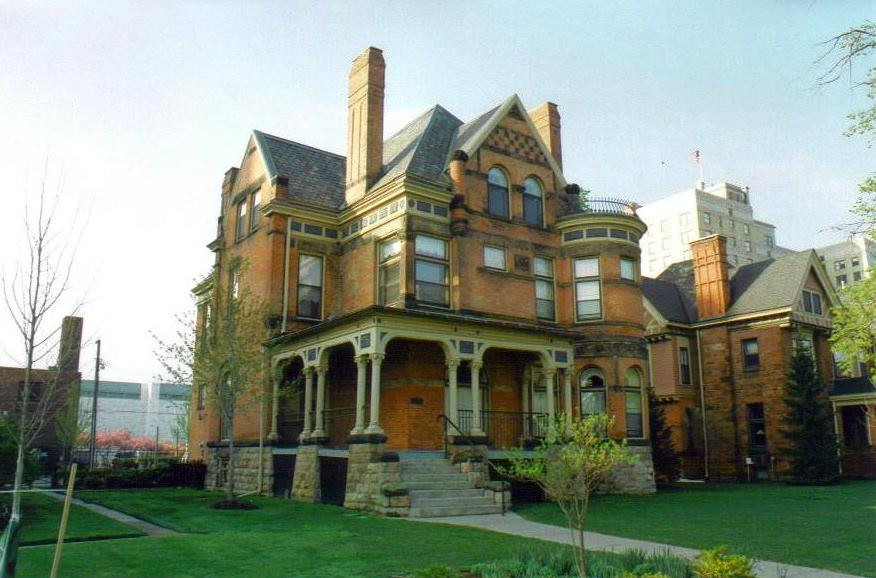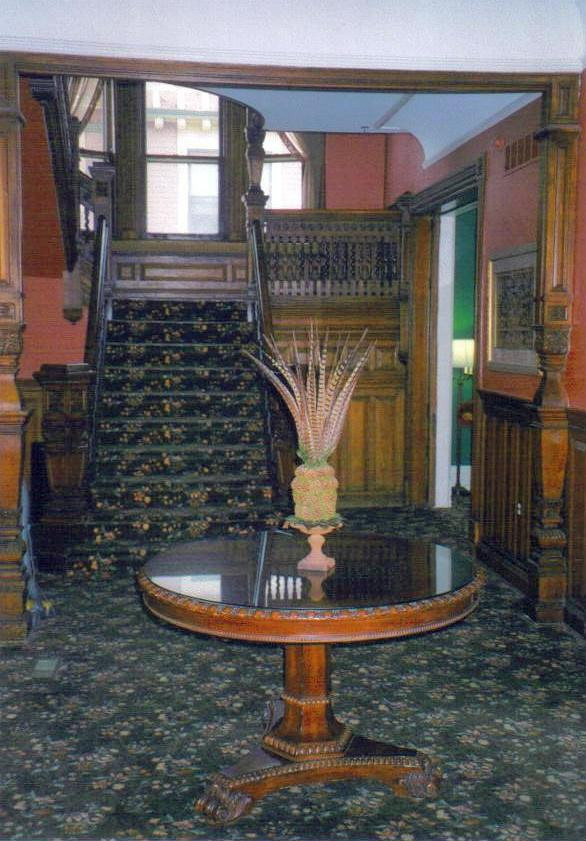Detroit, often lauded for its vibrant culture and historical significance, presented an intriguing proposition. Upon checking into The Inn on Ferry Street, the initial advice from the front desk was a touch cautious regarding a walk downtown. While the immediate vicinity felt welcoming, and downtown Detroit was deemed safe, the stretch of Woodward Avenue connecting them was described as less than ideal for leisurely exploration. A similar sentiment was echoed at a nearby bookstore, though the employee there, after learning I was from New York, offered a more encouraging perspective, suggesting a New Yorker would find it perfectly manageable and enjoyable.
 The Inn on Ferry Street in Detroit Michigan, showcasing four beautifully converted mansions
The Inn on Ferry Street in Detroit Michigan, showcasing four beautifully converted mansions
Trusting my instincts, I ventured out and indeed, the city unfolded with unexpected delights. From the bustling eateries of Greektown to the serene riverfront walkway and the captivating, if melancholic, remnants of Detroit’s automotive industry, the city offered a rich tapestry of experiences. Contributing significantly to this positive impression was the nightly return to the exceptional accommodations at The Inn on Ferry Street, undoubtedly one of Detroit’s finest establishments. Nestled in the Cultural Center, bordering the historically rich Brush Park, the inn is ideally located. A short walk brings you to cultural gems like the Detroit Historical Society, the campus of Wayne State University, the interactive Michigan Science Center, and the renowned Detroit Institute of Arts, a leading art museum in the United States. The inn itself is a collection of four meticulously restored Victorian brick and stone mansions, complemented by two carriage houses dating back to the late 1800s, transformed into a charming bed and breakfast in the 1990s. The surrounding landscaping enhances the visual appeal of the entire street, creating a truly beautiful setting.
Check-in took place at the Scott House (circa 1886), once the home of John Scott, a prominent Detroit architect responsible for landmarks like the Wayne County Building. Stepping onto the inviting front porch, one could almost envision lazy afternoons spent in rocking chairs with lemonade in hand. Entering through the front doors was like stepping back in time, into a world of exquisite woodwork, a grand staircase, high wainscoting, and an intricately carved fireplace.
 Owen House at The Inn on Ferry Street in Detroit, Michigan, inviting guests to experience historical charm
Owen House at The Inn on Ferry Street in Detroit, Michigan, inviting guests to experience historical charm
After parking my car safely in the inn’s off-street parking area behind the buildings, I made my way to the Owen House (1887), adjacent to the Scott House. My room, decorated in calming sage-green tones, was located on the top floor of this nine-room mansion. Owen House echoed the grand architectural details of the Scott House, boasting bold color palettes, including a striking deep red entry hall, an impressive staircase with ornate balusters and newel posts, and a parlor featuring dual fireplaces, a piano, elegant pocket doors, and cozy window seats.
The room’s centerpiece, a large sleigh bed, proved incredibly inviting each evening, making it a little harder to adhere to my morning schedule. Comfortable furnishings throughout the room offered ample lounging options: an oversized leather club chair with an ottoman, a loveseat, and a table with chairs by the windows. Thoughtful touches awaited, including a cookie, bottled water, and a selection of CDs neatly arranged on the end table, alongside the entrance to the small yet functional mustard-yellow bathroom.
Breakfast, served in the Scott House, was a delightful affair each morning. A generous spread included scrambled and hard-boiled eggs, do-it-yourself waffles, bagels, fresh fruit, cereal bars, and an assortment of breads and pastries. During breakfast, I observed a father and son at a nearby table, engrossed in their newspaper and laptop respectively, a scene punctuated only by the quiet consumption of Fruit Loops and a complete absence of conversation. In contrast, I would encourage guests to lift their gaze, take in the refined surroundings, and appreciate the atmosphere of bygone gentility and elegance that The Inn on Ferry Street so beautifully encapsulates—a rare and increasingly precious experience in today’s world.
